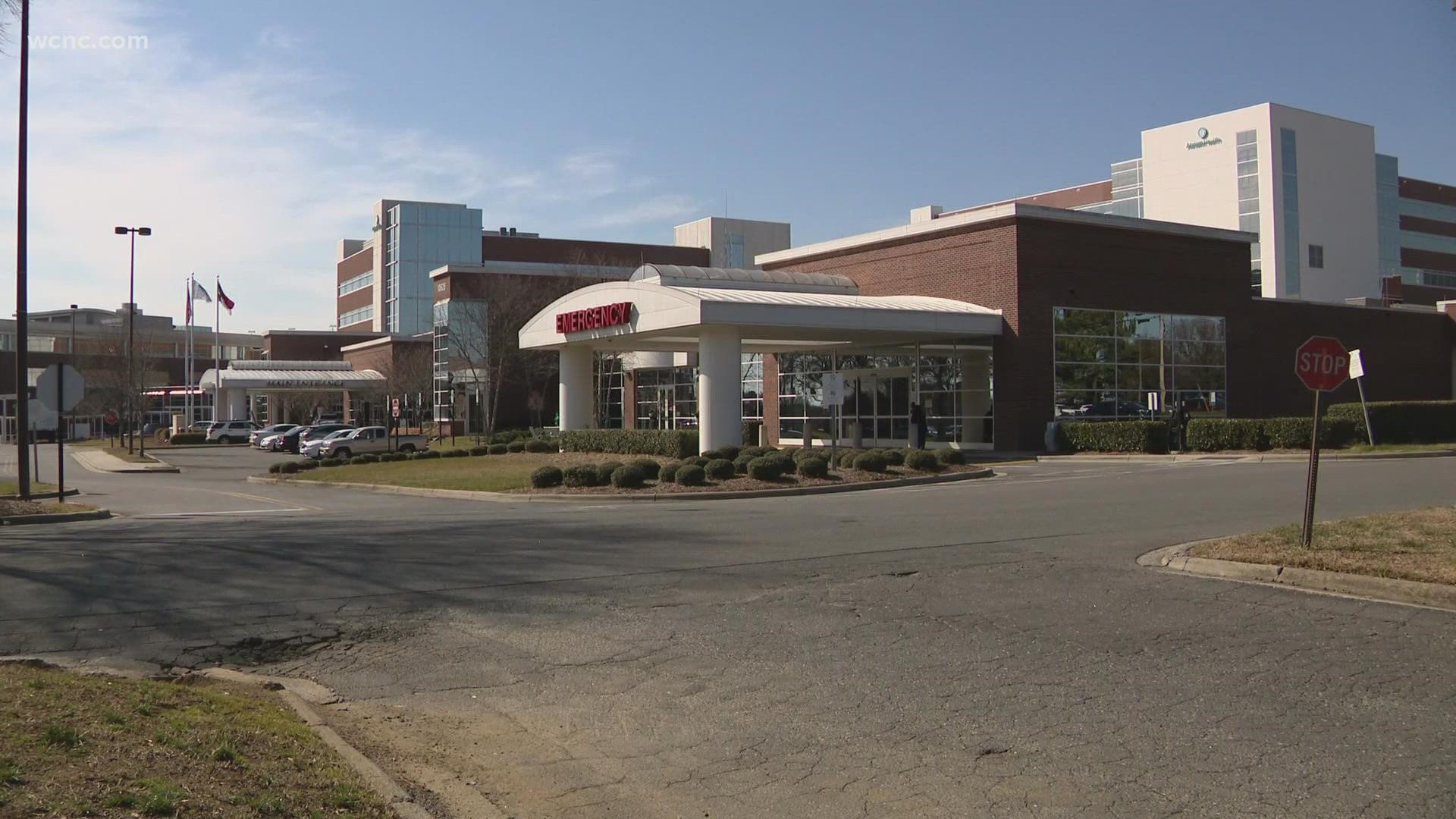PINEVILLE, N.C. — COVID-19 hospitalizations are finally starting to come down slowly, but at the height of the omicron surge, North Carolina saw several hospitalization records set and then broken the next day.
Healthcare workers were stretched so thin, Atrium Health and NCDHHS put in a request for federal help. The Department of Health and Human Services sent a 16-person team at the start of the month.
Healthcare systems everywhere were hit hard during the omicron surge. Locally, hospitals had the highest patient counts of the entire pandemic. Atrium officials say its Pineville location stood out as having the greatest need, and the federal help relieved some of that pressure.
Sometimes even the helpers need a hand.
“The frontlines of healthcare, I think, is exhausted and tired," Marc Scherschel, the team commander for the HHS disaster medical assistance team, said. "But they’re still in the fight, they’re still coming to work, and they’re still taking care of people."
Omicron spread at lightning speed, filling hospital beds and temporarily sidelining doctors and nurses, leading the state and Atrium Health to ask the federal government for reinforcements. On Feb. 1, a disaster medical assistance team made up of healthcare workers that have been deployed in hospitals around the country was brought in, led by Scherschel.
“The challenges are the same," he said. "It’s the number of patients coming to a facility, number of patients who need to be admitted to that facility, what their length of stay in that facility is."
Their help has cut wait times in the emergency department, leading to a trickle-down effect in the entire hospital.
Dr. Sheela Myers, the vice president and chief medical officer at Atrium in Pineville, said it’s been a critical resource.
“The psychological impact on the team is such an incredible lift," Myers said. "So not just having help, but having the help of highly trained, skilled clinicians come in and join the team, a team that knows very well the many faces of what this pandemic has done."
It's an impact everyone involved will continue to feel as metrics move in the right direction.
“It’s a cup filling experience for me, not a cup draining," Scherschel said. "You get tired and you work hard, and you have long hours, you flip your schedules and travel and you’re away from family. Those things are all detractors, but it really means a lot to all of us to be able to help another community.”
The federal team leaves on Sunday. Atrium officials said while beds are still relatively full, now that metrics are falling, they’re confident we’re moving in the right direction and the patient load will be more manageable.

